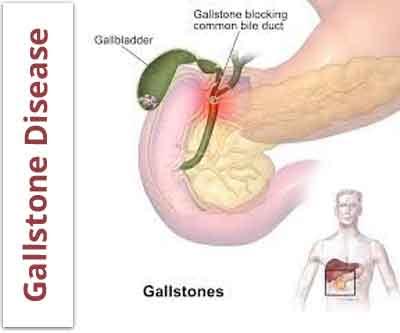- Home
- Editorial
- News
- Practice Guidelines
- Anesthesiology Guidelines
- Cancer Guidelines
- Cardiac Sciences Guidelines
- Critical Care Guidelines
- Dentistry Guidelines
- Dermatology Guidelines
- Diabetes and Endo Guidelines
- Diagnostics Guidelines
- ENT Guidelines
- Featured Practice Guidelines
- Gastroenterology Guidelines
- Geriatrics Guidelines
- Medicine Guidelines
- Nephrology Guidelines
- Neurosciences Guidelines
- Obs and Gynae Guidelines
- Ophthalmology Guidelines
- Orthopaedics Guidelines
- Paediatrics Guidelines
- Psychiatry Guidelines
- Pulmonology Guidelines
- Radiology Guidelines
- Surgery Guidelines
- Urology Guidelines
Stroke risk may decline after gallbladder removal in patients with gallstones

TAIWAN: Cholecystectomy -- removal of the gallbladder -- lowers the risk of stroke in patients having gallstones, according to a recent study published in the Journal of Gastroenterology and Hepatology.
The study, published in the journal Hepatology found that the risk of stroke fell by 36 percent following the removal of the gallbladder. The decrease in risk was consistent across all age groups and regardless of medication conditions, researchers said.
Gallstone disease is a common condition affecting up to 25 million people in the United States. A risk factor for the disease can be obesity or losing weight too fast. The shared risk factors for both gallstone disease and cardiovascular disease include age, obesity, BMI, diabetes, hypertension, unhealthy diet, and physical inactivity.
Previous research indicates that gallstones are linked with an increased risk of stroke. Cheng‐Yu Wei, Department of Neurology, Chang Bing Show Chwan Memorial Hospital, Changhua, Taiwan, and colleagues conducted the study to determine the risk of stroke among gallstone patients with and without cholecystectomy by investigating the effects of cholecystectomy in a nationwide population‐based retrospective cohort study.
The researchers analyzed data from Taiwan's National Health Insurance Research Database on 310,712 gallstone patients collected between 2000 and 2012, dividing patient profiles between those that had their gall bladders removed and those that did not.
Also Read: Gallstone disease may increase heart disease risk : AHA Study
Key findings of the study include:
- During the study period (2000–2012), 19 096 (17.8/1000 person‐years) gallstone patients without cholecystectomy and 11 913 (10.6/1000 person‐years) gallstone patients with cholecystectomy had a stroke.
- Following gallstone removal, the patients exhibited a significant decrease in the risk of overall stroke, ischemic stroke, and hemorrhagic stroke.
- Asymptomatic and symptomatic gallstone patients had lower overall stroke risk after cholecystectomy than did asymptomatic gallstone patients without cholecystectomy.
Also Read: Healthy diet decreases incidence of Gallstone disease
"Preventive measures for stroke may be considered for gallstone patients, particularly those presenting with risk factor(s) for stroke," concluded the authors.

Disclaimer: This site is primarily intended for healthcare professionals. Any content/information on this website does not replace the advice of medical and/or health professionals and should not be construed as medical/diagnostic advice/endorsement or prescription. Use of this site is subject to our terms of use, privacy policy, advertisement policy. © 2020 Minerva Medical Treatment Pvt Ltd